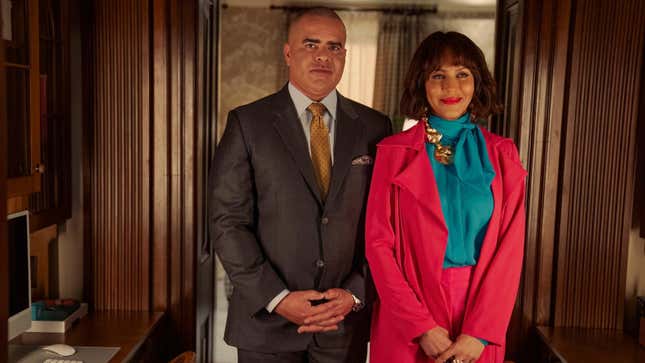‘And Just Like That’ Took on Unwanted Pregnancy This Week, and It Feels Like a Regression
The option of abortion was only referenced in hushed euphemisms in AJLT, compared to the original Sex and the City's bold abortion stories in a 2001 episode.
EntertainmentTV

Last week on And Just Like That, we learned Charlotte’s new friend, documentarian Lisa Todd Wexley, is pregnant—an unplanned, crushing outcome for Lisa, who was about to return to her career after taking years off to raise three kids. (PBS just picked up her documentary on trailblazing Black women for a 10-episode series. Hooray!) And this week, with part one of the season’s two-part finale, we learn Lisa is even more devastated by the unplanned pregnancy than previously known.
Lisa wakes up in the middle of the night distraught and berates her husband for not getting the vasectomy she’d asked him to get eight years ago. Earlier in the episode, she reveals her pregnancy to Charlotte, asking while on the verge of tears: “How am I going to do a ten-part series with a newborn?” She continues, “I will be failing at both jobs. When the baby comes, even with help, it’s just so much, so many moods and schedules to manage.”
“I just, I thought it was finally my time,” she says, crying.
-

-

-

-

-

-

-

-

-

-

-

-

-

-

-

-

-

-

-

-

-

-

-

-

-

-

-

-

-

-

-

-

-

-

-

-

-

-

-

-








































